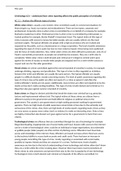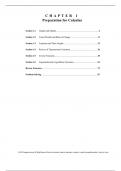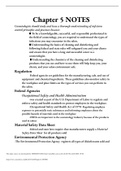Exam (elaborations)
Criminology a level unit 1 controlled assessment changing awareness of crime
- Module
- Changing Awareness of Crime
- Institution
- WJEC
Full set of answers for the unit 1 (LO1) controlled assessment for WJEC criminology a level which I used to achieve an A.
[Show more]












